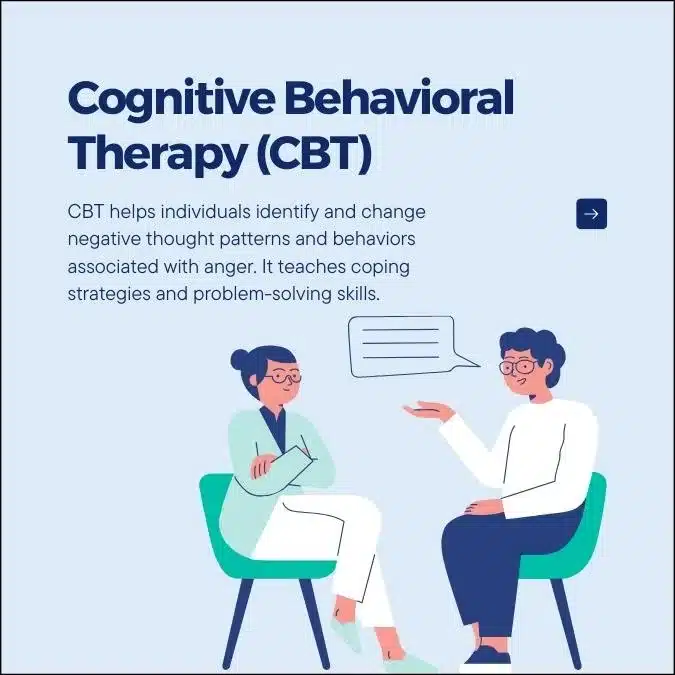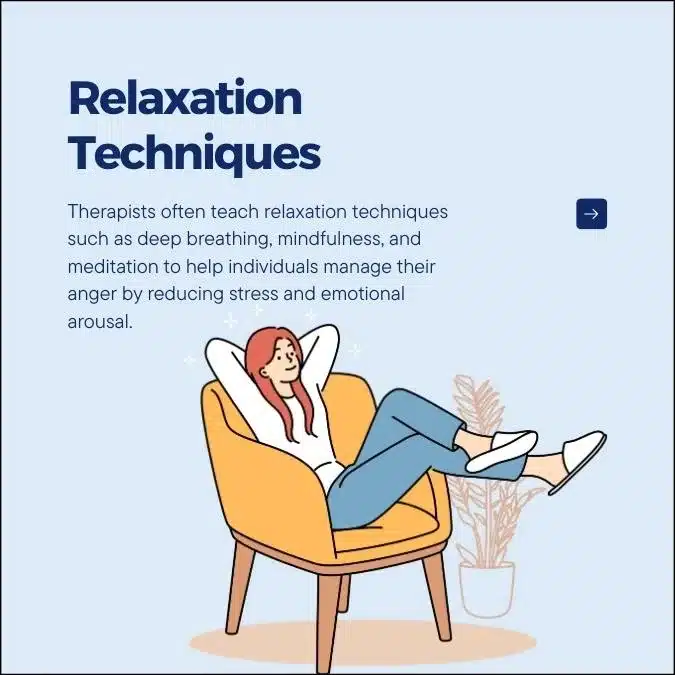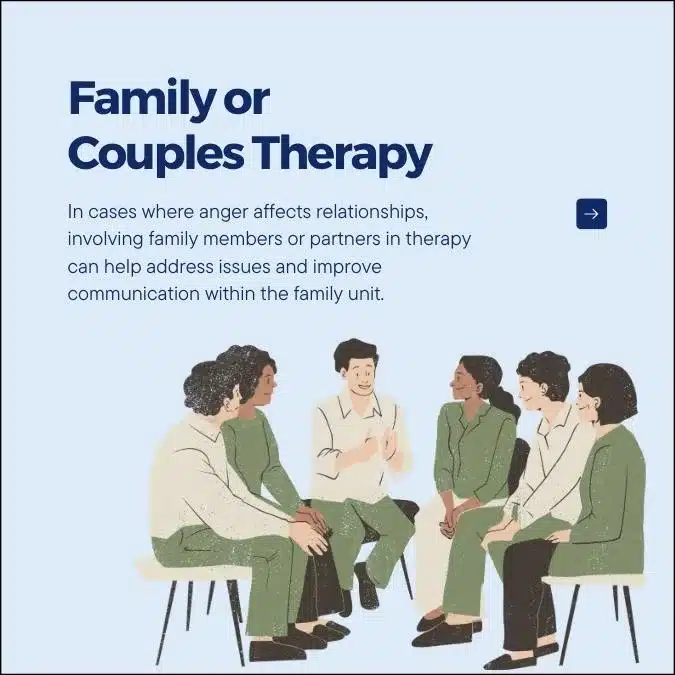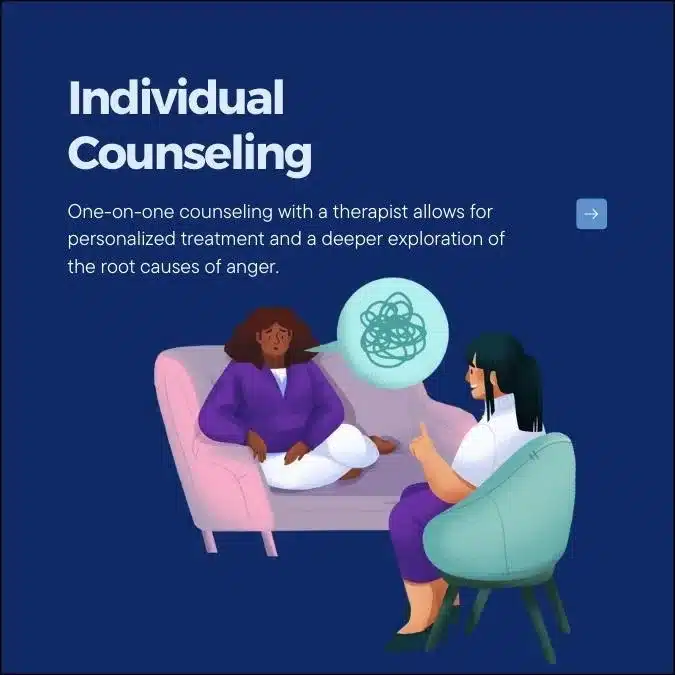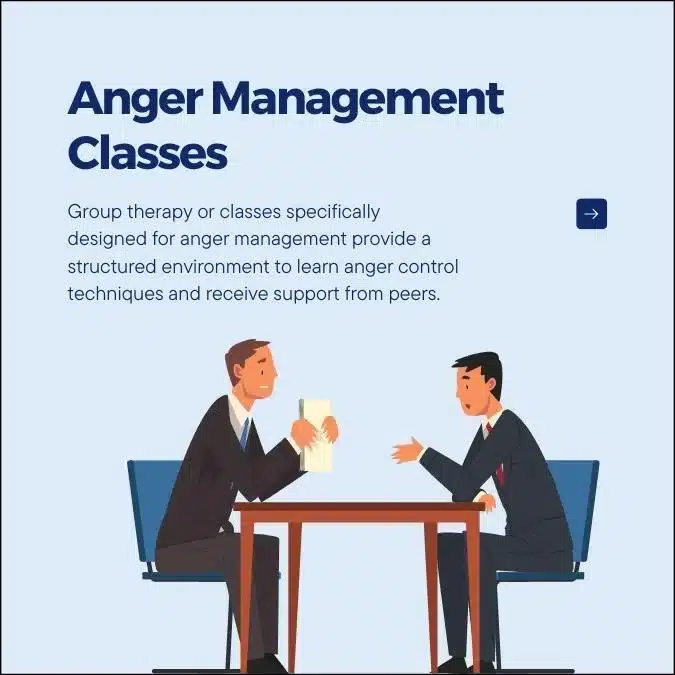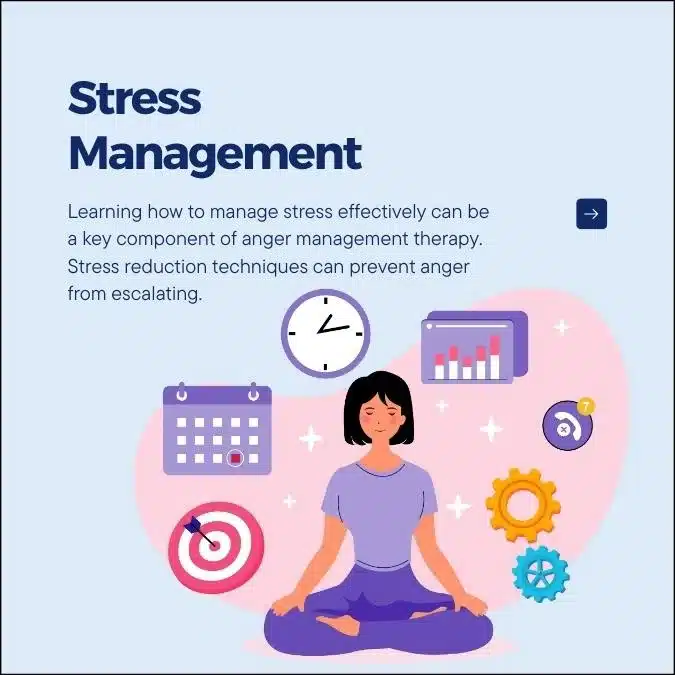|
Getting your Trinity Audio player ready...
|
Anger is something we all deal with, but when it starts to take over, it’s time to get some help. Therapy for anger management is a powerful tool that can help you regain control and stop those explosive moments from running your life.
Whether it’s in relationships, at work, or just day-to-day frustrations, therapy for anger management helps you understand and manage your triggers. It’s not about suppressing emotions—it’s about learning how to express them healthily.
Ready to take the first step toward peace? Let’s explore how therapy can help you turn anger into something more productive!
1. Cognitive Behavioral Therapy (CBT):
Cognitive Behavioral Therapy (CBT) is like the superhero of mental health strategies—it helps you tackle those pesky negative thoughts and turn them into something more productive.
Whether you’re feeling overwhelmed by anxiety, stuck in a depression rut, or just need a way to manage stress, CBT gives you the tools to change how you think, feel, and act.
It’s not all talk; this therapy gets you into action, teaching you how to reframe those mind traps.
2. Mindfulness and Meditation
Mindfulness and meditation are more than just trendy buzzwords—they’re powerful tools for managing stress, improving focus, and boosting overall well-being. Practicing mindfulness helps you stay present, reducing anxiety and promoting emotional balance.
Meanwhile, meditation calms the mind, allowing you to relax and refocus. By incorporating these practices into your daily routine, you can sharpen your mental clarity and improve your emotional health.
Whether you’re a beginner or a seasoned pro, even just a few minutes a day can make a big difference.
Read: Can Science Really Teach You How to Forgive?
3. Group Therapy
Group therapy for anger management is a powerful way to address anger issues in a supportive, collective setting. In group therapy for anger management, participants learn to share experiences, explore triggers, and develop healthier ways to cope with frustration.
It’s not just about venting—it’s about learning practical techniques to control your reactions and prevent destructive outbursts. You gain valuable insights and support by connecting with others facing similar challenges.
Whether it’s through role-playing exercises, mindfulness practices, or stress reduction techniques, group therapy for anger management helps you gain emotional control while building strong, empathetic connections with others.
Ready to take control of your anger? It’s time to join a group and start healing.
4. Art Therapy
Art therapy for anger management is a unique and creative way to process and express intense emotions. In art therapy for anger management, individuals use various art forms like drawing, painting, and sculpture to channel their feelings and gain insights into their anger triggers.
This approach helps you express what words can’t, offering a safe and non-verbal outlet for frustration. Working with a trained therapist, you can explore underlying issues and develop healthier ways to cope.
Whether you’re creating a calming landscape or an abstract piece, art therapy for anger management gives you the tools to manage anger in a constructive and therapeutic way. Ready to get creative and take control of your emotions? Let art guide the way!
Read: 10 Powerful Life-Changing Lessons to Learn From Buddha
5. Biofeedback and Neurofeedback
Biofeedback and neurofeedback therapy are innovative methods for managing anger by teaching you to control your body’s physiological responses. In biofeedback and neurofeedback therapy for anger management, sensors track your heart rate, muscle tension, and brainwaves to help you recognize when your body is about to “flip the switch” into anger.
With guidance from a therapist, you’ll learn techniques to calm these responses in real-time. Over time, you can train your brain and body to stay calm, even in stressful situations.
These therapies offer a science-backed approach to managing anger that goes beyond talking about it—it’s all about real, measurable change. Ready to turn off the rage switch? Biofeedback and neurofeedback therapy for anger management might be the game-changer you need!
6. Talk Therapy
Talk therapy for anger management is one of the most effective ways to understand and control your emotions. In talk therapy for anger management, you work with a licensed therapist to explore the root causes of your anger, identify triggers, and develop healthier ways to express frustration.
It’s not just about venting—it’s about learning to manage your emotions in real-life situations. With techniques like cognitive-behavioral therapy (CBT) and mindfulness, talk therapy helps you reframe negative thoughts and build emotional resilience.
Whether you’re dealing with everyday stress or deeper issues, talk therapy for anger management offers the tools to take control of your reactions and lead a calmer, more balanced life. Ready to get started? Let’s talk it out!
7. Anger Management Classes
Anger management class therapy is a structured approach to understanding and controlling your anger. In anger management classes therapy for anger management, you learn valuable techniques to recognize your emotional triggers and respond in healthier ways.
These classes provide a supportive environment where you can explore the roots of your anger, understand how it impacts your relationships, and gain practical skills to manage it. Through guided discussions, role-playing, and relaxation exercises, you’ll develop strategies to stay calm in stressful situations.
Whether you’re looking to improve personal relationships or manage workplace stress, anger management classes therapy for anger management offers a solid foundation for long-term emotional control.
8. Dialectical Behavior Therapy (DBT)
Dialectical Behavior Therapy (DBT) for anger management is a powerful approach that helps you balance intense emotions with healthy coping strategies.
In Dialectical Behavior Therapy (DBT) for anger management, you’ll learn skills to tolerate distress, regulate emotions, and improve interpersonal relationships.
DBT combines mindfulness techniques with practical tools, helping you understand the root causes of your anger and how to manage it in real time. Whether it’s learning to breathe through frustration or mastering emotion regulation techniques, DBT gives you the tools to respond thoughtfully rather than react impulsively.
If you’re ready to break the cycle of anger and develop healthier emotional habits, DBT for anger management might be the therapy that works for you.
Final Thoughts on Therapy For Anger Management
So, what’s the deal with therapy for anger management? Here’s the truth—it works, and it works wonders!
No matter which approach you choose, whether it’s talk therapy, art therapy, or biofeedback, therapy for anger management equips you with the tools to handle those intense moments of frustration before they spiral out of control.
It’s not about bottling up your feelings; it’s about learning how to express them in a healthier, more constructive way. With the right therapist and the right approach, therapy for anger management helps you understand the root causes of your anger, recognize your triggers, and develop coping strategies that stick.
Imagine a life where you can stay calm in stressful situations and respond to conflicts without that overwhelming surge of rage. Sounds great, right? Therapy can help make that your reality. Ready to take control and transform your anger into something more productive? You can do it!
For more empowering content, connect with our vibrant community here ➡️ Social Media.

